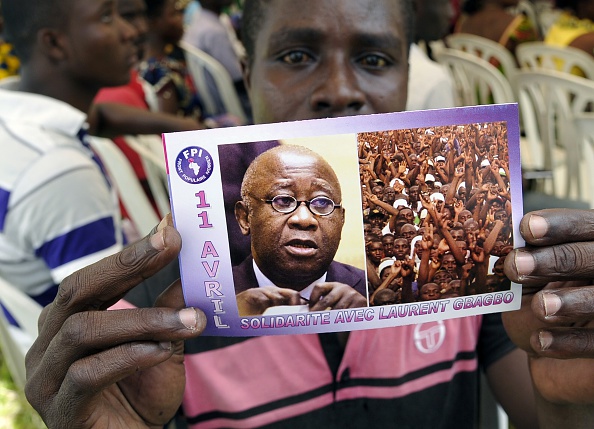THE HAGUE, Netherlands – Former Ivory Coast president Laurent Gbagbo pleaded not guilty Thursday to four counts of crimes against humanity at the start of the International Criminal Court’s first trial of an ex-head of state.

Gbagbo is accused together with a former youth minister, Charles Ble Goude, of involvement in atrocities that left 3,000 people dead after a disputed 2010 presidential election runoff in their West African nation.
Ble Goude also pleaded not guilty to four charges as the trial opened.
Both men listened intently as a court officer read out allegations that they plotted to keep Gbagbo in power “by all necessary means, including by committing the crimes charged.”
Despite the charges, Gbagbo remains popular among some Ivoirians. Dozens massed outside the court ahead of the trial, which is expected to last many months, to show their support for him. One supporter called Gbagbo a victim of a coup from France, Ivory Coast’s former colonial power.
A former university professor who founded an opposition party well before Ivory Coast embraced multiparty democracy, Gbagbo spent much of the 1980s in exile in France. After returning to Ivory Coast, he lost the 1990 presidential vote and spent six months in jail in 1992 for his role in student protests.
He came to power in 2000 in a flawed vote he himself described as “calamitous,” although he put off holding another one for a decade. In the 2010 race, Gbagbo placed first in the first round with 38 per cent of the vote before losing to Alassane Ouattara in the runoff.
Gbagbo and Ble Goude each face four crimes against humanity charges, including murder and rape allegedly committed by pro-Gbagbo forces in late 2010 and early 2011 as Gbagbo attempted to cling to power.
Prosecutors say the two men marshalled security forces, youth militias and mercenaries to attack groups perceived as Ouattara supporters.
“Gbagbo’s trial is a cautionary tale for those willing to use whatever means necessary to cling to power,” said Param-Preet Singh, senior international justice counsel at Human Rights Watch. “Today, victims who suffered unspeakable crimes at the hands of pro-Gbagbo forces are one step closer to seeing justice.”
But while activists welcomed Gbagbo’s trial, they also cautioned that crimes allegedly committed by Ouattara supporters also must be prosecuted.
“All those suspected of criminal responsibility for these horrific crimes, including current President Alassane Ouattara’s supporters, must be brought to account through fair trials, either in country or by the ICC,” said Gaetan Mootoo, a West Africa researcher with Amnesty International. “This is the only way to ensure justice for the hundreds of victims.”



Comments